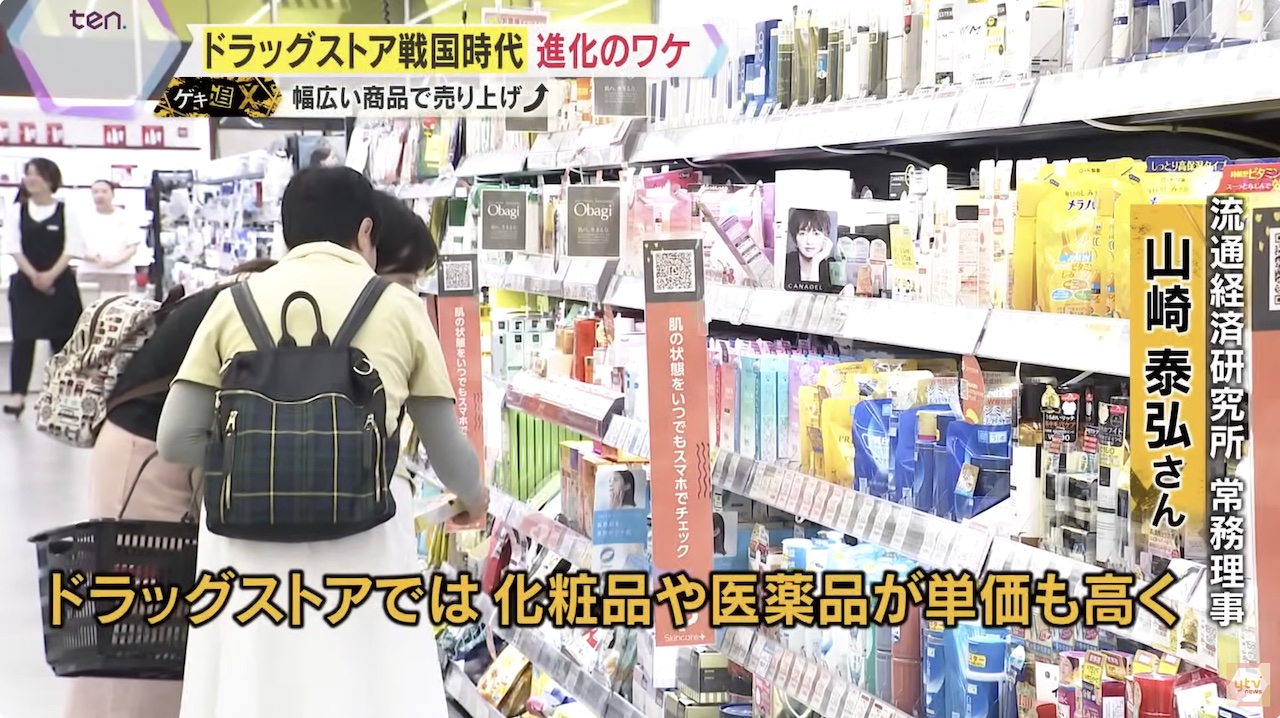TOKYO, Aug 23 (News On Japan) - Drugstores are rapidly expanding across Japan, with the market size reaching over 8.3 trillion yen ($57 billion) in 2023. Introduced to Japan in the 1970s, drugstores initially focused on selling medicine and daily necessities. However, many stores now offer a wide range of products, intensifying competition among companies leveraging their unique strengths.
Some chains are emphasizing their private label products, focusing on health-conscious items, while others are capitalizing on the growing interest in men's cosmetics. Additionally, some drugstores have begun to resemble supermarkets, offering fresh produce like meat and vegetables, as well as ready-made dishes. This has broadened the scope of competition beyond the traditional drugstore industry.
The number of drugstores across Japan has surged, now totaling around 20,000 outlets. Customers frequently visit these stores not just for medicine, but also for daily necessities, attracted by the competitive prices. In response to the growing competition, drugstores are differentiating themselves through various strategies. A noticeable trend is the increasing emphasis on grocery items, with some chains even offering fresh food.
For instance, Welcia Holdings, the top-grossing chain in the industry, has focused on exclusive products under its private brand, "Welcia Class." With around 300 types of health-conscious items, Welcia is leveraging its scale as part of the Aeon Group to capture customer attention. One of its popular items is an exclusive frozen fried rice developed with a famous ramen shop owner in Tokyo.
Meanwhile, Matsumotokiyoshi Holdings, the third-largest player in the market, is expanding its cosmetics line, particularly for men, in response to the rising beauty consciousness among male customers. By collaborating with men's cosmetics manufacturer Mandom, Matsumotokiyoshi has successfully attracted new customers.
Drugstores have evolved since their introduction in the 1970s, alongside Japan's rapid economic growth. Initially selling only pharmaceuticals and daily necessities, they have now broadened their product range significantly. According to industry experts, the key to increasing sales has been expanding the range of frequently purchased items, such as groceries.
For example, Kusuri no Aoki, based in Ishikawa Prefecture, operates stores that resemble supermarkets, with fresh vegetables displayed prominently. The store offers competitively priced fresh produce and ready-made dishes prepared in-house. Kusuri no Aoki's focus on groceries has allowed it to increase sales while maintaining customer interest with affordable prices.
As the competition intensifies, drugstores are not just competing within their industry but are also facing challenges from supermarkets and convenience stores. The battle for survival is becoming increasingly fierce, with each chain striving to capture a larger share of the shrinking population’s spending.
Source: YOMIURI
















